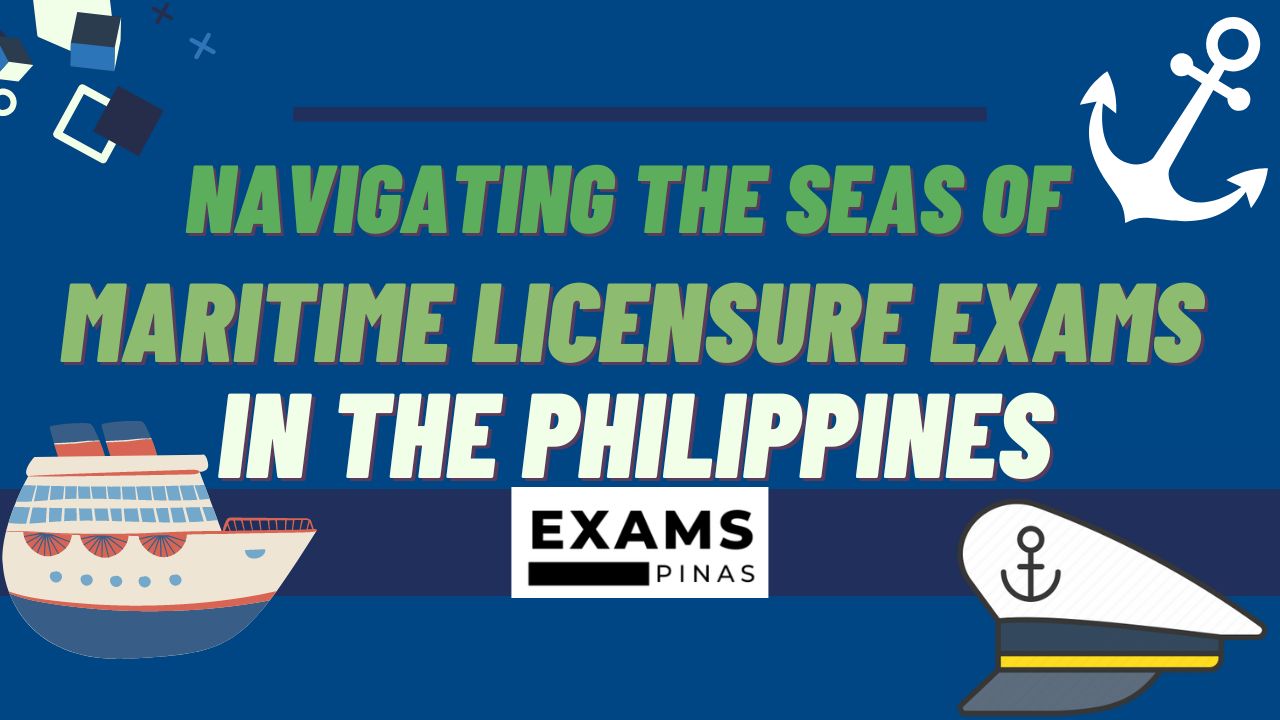Unveiling the Path to Success in Maritime Licensure Exams
When it comes to pursuing a rewarding career in the maritime industry in the Philippines, navigating the waters of licensure exams is an essential step. Aspiring maritime professionals set their sights on these exams to secure the necessary qualifications that open doors to a world of opportunities on the high seas. In this comprehensive guide, we delve deep into the strategies, tips, and insights that will steer you toward success in the challenging maritime licensure exams of the Philippines.
Understanding the Significance of Maritime Licensure Exams
The Gateway to a Thriving Maritime Career
Maritime licensure exams serve as the gateway to a promising career at sea. Whether you aspire to become a deck officer, marine engineer, or pursue another maritime profession, these exams validate your knowledge, skills, and competency to navigate vessels safely and efficiently. The maritime industry places a premium on certified professionals who can contribute to the industry’s growth while ensuring the safety of crew members, cargo, and the environment.
Charting Your Course: Essential Steps for Exam Preparation
1. Mastering the Regulatory Landscape
To excel in maritime licensure exams, you must be well-versed in the regulatory framework that governs the industry. Study the relevant international conventions, local regulations, and industry best practices that form the foundation of maritime operations. This knowledge will not only help you answer exam questions accurately but also instill in you a deep understanding of your responsibilities as a maritime professional.
2. Comprehensive Study Plans
Create a study plan that covers all key subject areas. Effective time management is crucial; allocate more time to challenging topics while revisiting areas of strength periodically. Utilize mnemonic devices, flashcards, and mind maps to reinforce your memory retention. Consider enrolling in reputable maritime review centers that provide structured guidance and expert insights.
3. Navigating the Ocean of Resources
The maritime industry is dynamic, and resources abound. Seek out authoritative books, online platforms, and digital libraries that offer updated information on maritime practices, regulations, and case studies. Leverage educational tools, simulators, and interactive materials to grasp complex concepts effectively.
4. Simulation and Practical Training
Hands-on experience is invaluable in the maritime field. Engage in simulation exercises, both virtual and in-person, to apply theoretical knowledge to real-world scenarios. Practical training instills confidence and hones your decision-making skills, critical for maritime professionals.
Plotting a Course Through Exam Day
1. Effective Time Management During the Exam
The clock is your ally and your adversary during maritime licensure exams. Allocate time per question, and if you encounter a challenging item, move on and return to it later. This approach ensures that you maximize the points you can earn within the given timeframe.
2. Reading and Analyzing Questions
Thoroughly read each question, paying attention to keywords and specific instructions. Highlight crucial information and break down complex problems into manageable steps. Often, the key to solving a question lies in comprehending what is being asked.
3. Utilizing Proper Test-Taking Strategies
Answer questions you are confident about first, then tackle the more challenging ones. In multiple-choice questions, eliminate obviously incorrect options to narrow down your choices. For practical exams, follow established procedures and safety protocols meticulously.
Sailing Toward Success: Tips for Last-Minute Preparations
1. Final Review and Revision
In the days leading up to the exam, focus on reviewing key concepts, formulas, and regulations. Avoid cramming; instead, consolidate your understanding through quick reviews and concise notes.
2. Mindfulness and Rest
Prioritize your mental and physical well-being. Practice mindfulness techniques to manage pre-exam anxiety. Ensure you get adequate sleep and maintain a balanced diet to keep your mind sharp and focused.
3. Confidence Anchored in Preparation
Trust in your preparation journey. Recall the hours you’ve dedicated to studying, practicing, and refining your skills. Confidence is the wind that fills your sails, propelling you toward success.
Embarking on a Fulfilling Maritime Journey
Steering through the maritime licensure exams in the Philippines requires dedication, resilience, and a thirst for knowledge. As you stand on the threshold of your maritime career, remember that these exams are not merely challenges to overcome, but opportunities to prove your mettle and commitment to a profession that plays a vital role in global trade, commerce, and exploration.
Navigate with Knowledge. Sail with Skill. Conquer the Maritime Licensure Exams in the Philippines.
“Smooth seas do not make skillful sailors.” – African Proverb
In the realm of maritime licensure exams in the Philippines, success hinges on meticulous preparation, a deep understanding of maritime regulations, and the ability to apply theoretical knowledge to practical scenarios. By adopting effective study strategies, mastering test-taking techniques, and nurturing confidence, you set sail toward a prosperous maritime career, contributing to the safety and growth of the industry that connects continents and cultures across the world. Bon voyage to your maritime journey!

